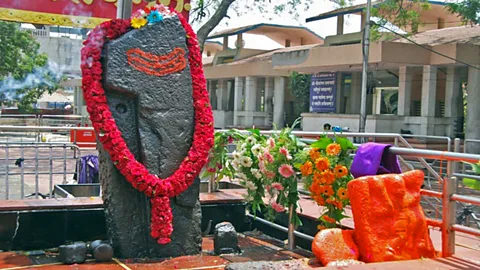Now Reading: Shani Shingnapur: The Maharashtra Village Where Doors Exist, But Locks Don’t
-
01
Shani Shingnapur: The Maharashtra Village Where Doors Exist, But Locks Don’t
Shani Shingnapur: The Maharashtra Village Where Doors Exist, But Locks Don’t

In a country where security is a growing concern, there’s one village that stands out for its radical trust in faith over locks and alarms. Shani Shingnapur, a small town in Maharashtra’s Ahmednagar district, has become known for something you won’t see—locks on doors. Homes, shops, and even banks here once operated without a latch, all under the watchful eye of the village’s presiding deity, Lord Shani.
A tradition built on belief
For decades, the residents of Shani Shingnapur have lived with their doors wide open, literally. While most homes do have door frames, they avoid fitting them with shutters or locks. The idea isn’t about defiance or minimalism—it stems from a strong belief that anyone who attempts theft or dishonesty in the village will face instant punishment from Lord Shani, the god of justice in Hindu mythology.
This belief runs so deep that families here sleep peacefully with their valuables inside open homes, convinced that divine forces will protect what law enforcement might not.
No police stations, no theft reports
What adds to the curiosity is that until recently, Shani Shingnapur had no police station. For years, villagers claimed there hadn’t been a single recorded theft. Even as nearby towns modernised, adding CCTV cameras and private guards, this village continued trusting in something far more ancient.
The narrative isn’t just about superstition—it reflects the community’s shared values and an unusual social contract. When everyone agrees not to steal, and believes they’ll be cursed if they do, crime naturally stays low. At least, that’s been the case here.
Faith meets modern friction
In recent years, the outside world has nudged its way into this faith-driven setup. Incidents of theft—though rare—have occurred, shaking the long-standing belief for some. A few villagers have cautiously started using doors or locking storage units inside their homes, though many still resist the change.
One of the biggest turning points came when a national bank opened a branch in the village without locks, following the local tradition. Later, under pressure from regulators, even that bank quietly installed security systems. It was a reminder that while beliefs can shape a lifestyle, institutions run on rules.
A lesson for modern India?
For many across Tier 2 cities and small towns, where rapid development often outpaces trust, Shani Shingnapur offers an unusual case study. It shows what happens when a community aligns around a shared belief—and what that belief can achieve in terms of unity, peace, and accountability.
But it also reveals the limits of faith in a changing world. As migration increases and social boundaries blur, old customs must constantly adjust. That doesn’t mean abandoning tradition, but it does mean rethinking how to protect it.
In conclusion
Shani Shingnapur isn’t just a village without locks—it’s a symbol of the delicate balance between faith, community, and the realities of the modern world. Whether or not one believes in divine justice, there’s something powerful about a town that trusts its people enough to leave their doors open. In a time where fear often drives behaviour, that kind of collective trust feels rare—and worth remembering

























